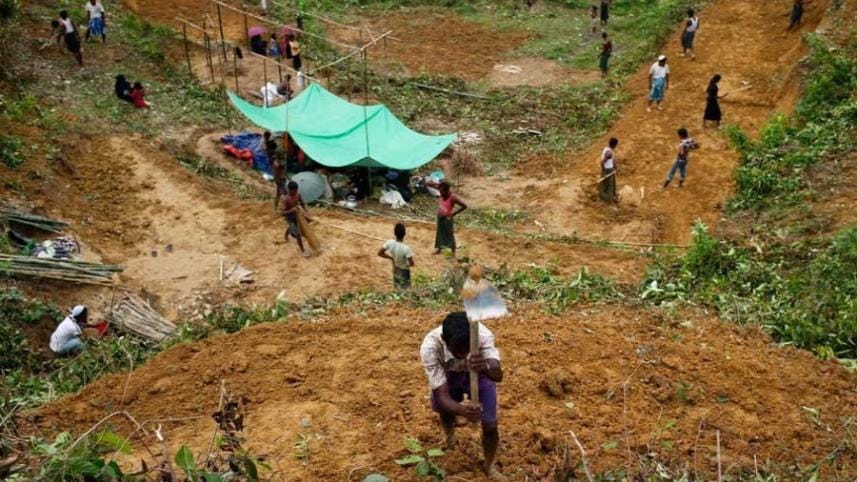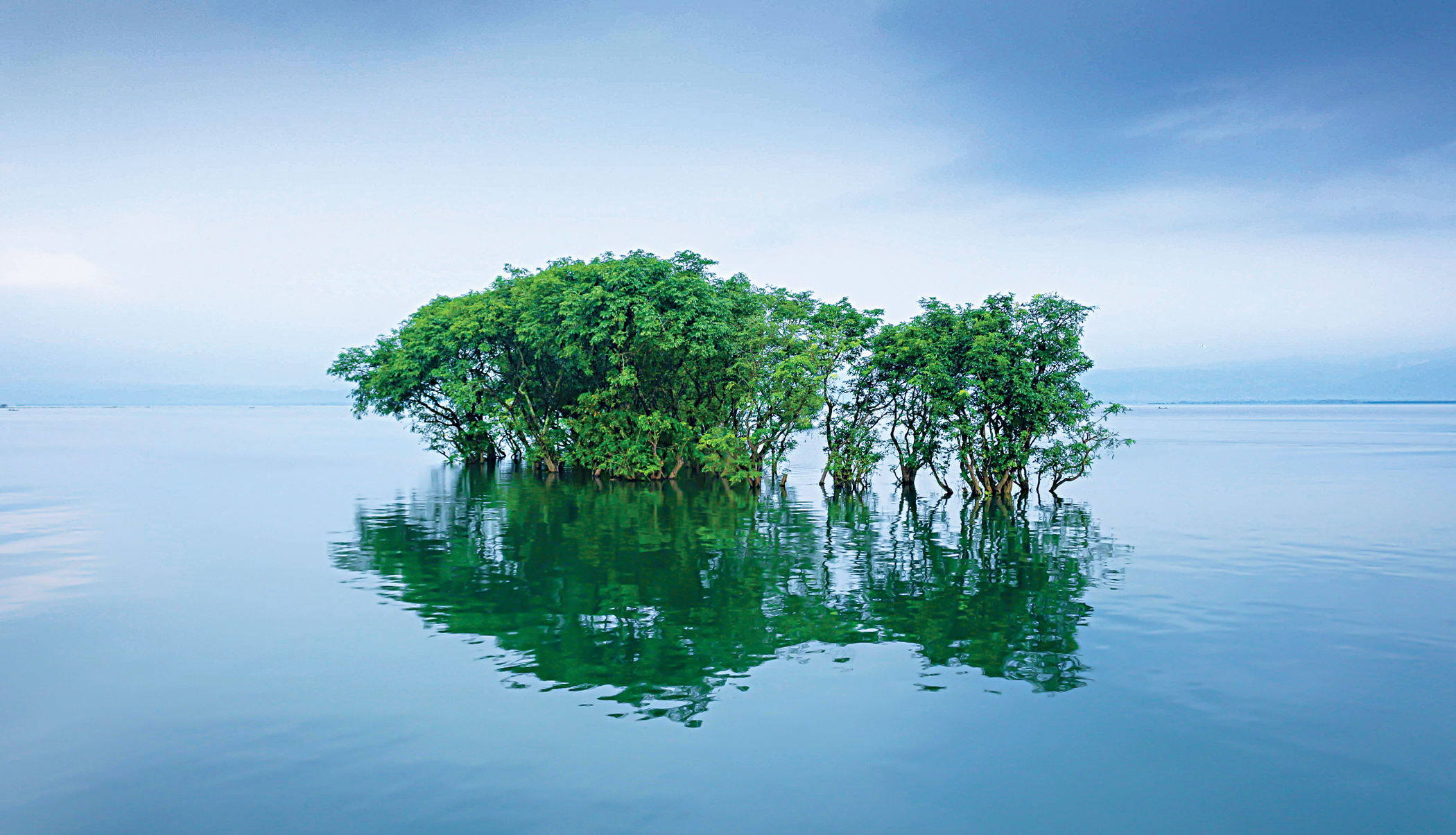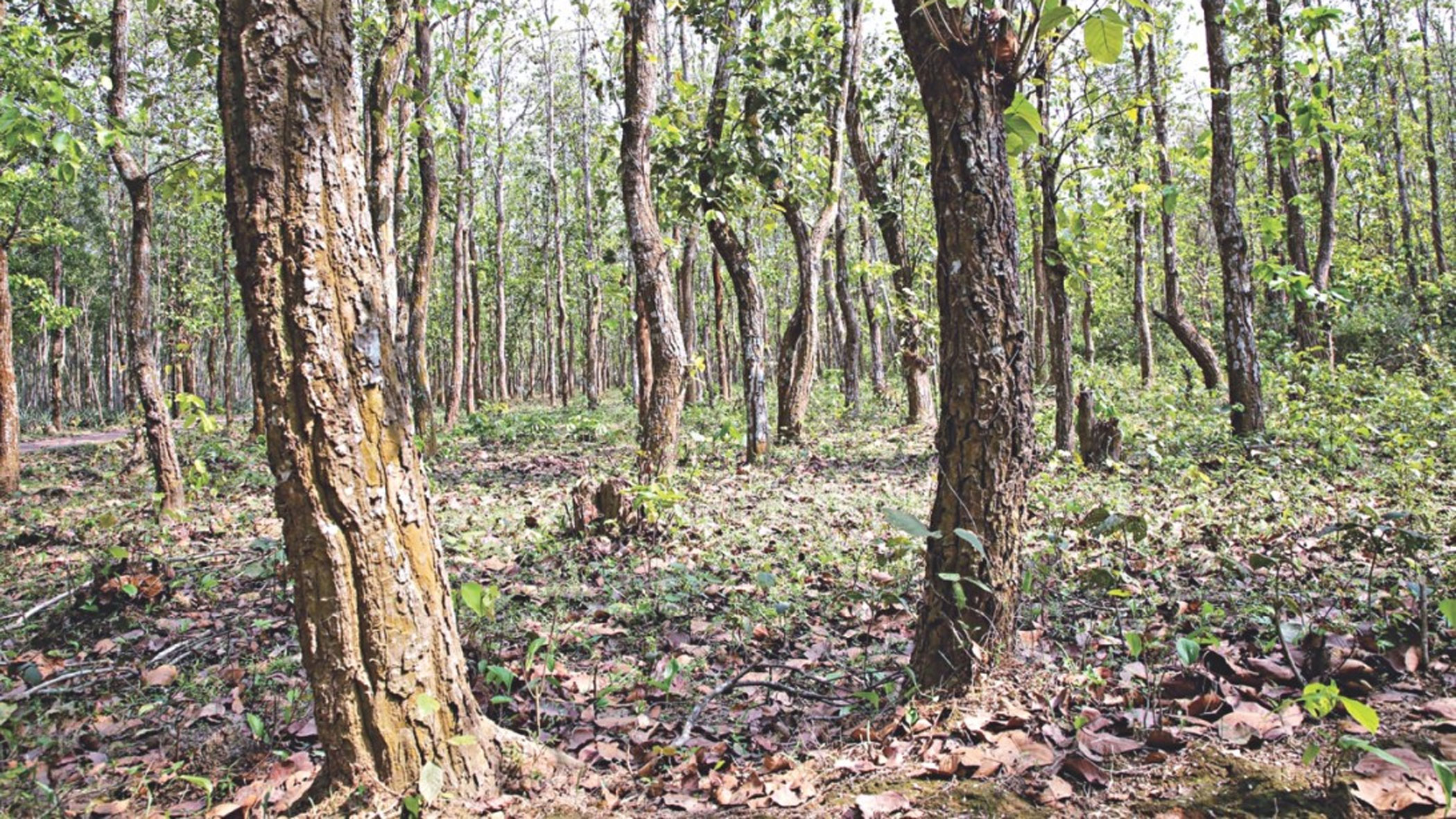Combatting the Rohingya refugee crisis with nature-based solutions

In the first quarter of the past five years, humanitarian agencies and the Bangladesh government together have been launching the annual Joint Response Plan (JRP) to address the on-going Rohingya refugee crisis in Bangladesh. As a "Nature-based Solutions" (NbS) enthusiast myself, I am in a dilemma seeing NbS in 2023's JRP, like last year – should I be happy, or worried?
Environment and ecosystem rehabilitation has always been a cross-cutting issue in the JRPs. It is indeed exciting for environmentalists to see NbS finding its place in the world's largest refugee camp sheltering about a million of Myanmar's Muslim minority. NbS basically means protecting, restoring, creating, or managing terrestrial or aquatic ecosystems to tackle different challenges of our society. Over the last few years, NbS has been widely discussed in addressing ecological degradation, water and food insecurity, natural calamities, and climate crisis, for example. To me, the most unique aspect of NbS is, from one NbS action, we get two types of benefits, simultaneously – human well-being and improved biodiversity.
On August 25, 2020, I wrote a piece in this column showing how different interventions implemented in the Rohingya refugee camps could be branded as NbS – be it restoring hilly stream banks to ensure easy passing of flood waters, creating water reservoir to reduce devastation of flooding, stabilising hilly slopes with terraces covered with grasses and trees to stop landslide, and, of course, expanding the green cover within and outside the camps to improve the landscape.
Like the JRP 2022, the new JRP 2023 aims to promote NbS as the agencies continue developing the camp infrastructure, including slope stabilisation and drainage systems. It also envisages climate-sensitive food production by practising climate-smart agriculture, opportunities for resilient income, land and water restoration activities, and sustainable water resource management as a means of adapting to climate change. Since 2018, as many as 3,200 hectares of degraded land have been reforested, and reforestation remains an integral part of the JRP 2023.
Despite these positive developments and future plans, my main concern is if we will see a full adoption of NbS principles and standards in the refugee camps of Cox's Bazar-Teknaf Peninsula. If we want to implement a true NbS, first we need to understand the local problems and design a suitable NbS intervention accordingly. Once an NbS is implemented, we need to periodically measure if it is increasing the local biodiversity, while giving benefits to humans. We also need to calculate the economic feasibility of the NbS action. Both of these are doable, if we can allocate sufficient resources to bring in necessary expertise. But, two other important features of NbS are: a) engaging local communities in NbS planning and execution; and b) negotiating and agreeing with them on the temporary losses and the long-term gains from an NbS. In other parts of Bangladesh, although challenging, such community participation is possible. We saw that in Hakaluki Haor over the last almost 25 years, in Tanguar Haor since 2006, and in the Teknaf Wildlife Sanctuary, just outside the refugee camps, and other protected forests over the past two decades.
But things are different in Rohingya refugee camps. Six years on, the Bangladesh government still officially identifies these people as the "Forcibly Displaced Myanmar Nationals (FDMNs)," not as refugees. Nevertheless, Rohingyas can be a part of the workforce to implement NbS interventions inside the camps and earn a wage while doing so – as they have been extensively doing it under numerous activities since 2018. But they cannot be a true part of the governance system, although the NbS standards strongly expect stakeholders to own the decisions they make and hold the system accountable for executing those decisions. Also, a core principle of NbS envisages that NbS interventions should be implemented with "the full engagement and consent of Indigenous Peoples and local communities in a way that respects their cultural and ecological rights", which is not possible with the Rohingyas in the absence of such rights. Another challenge in the camps is installing an adaptive management of NbS as these interventions are long-term ventures. Such a system needs regular collection of evidence to guide NbS management, which is not quite possible in the refugee camps, since we are not supposed to think of anything long-term for this settlement.
I believe contextualisation is the word we should be focusing on to address the above challenges. First, humanitarian and government agencies working in the refugee camps, especially in the environment space, should discuss how to contextualise NbS principles and standards in this refugee crisis, which is already burdened with uncertainties and is far away from any resolution. The Inter-Sector Coordination Group (ISCG) Secretariat should facilitate this process as it has been superbly doing so for the environment and energy sector. Second, there should be a "Community of Practice" to bring together agencies of Rohingya refugee camps, experts with knowledge on Bangladesh's NbS, and experts already working in the conservation-refugee crisis space around the globe. This will help to exchange ideas and expertise, and give the humanitarian leadership in Bangladesh to make NbS effective in Cox's Bazar, especially on how to bring refugees into the NbS process, without jeopardising the host government's stand on the crisis and vision towards a resolution.
Finally, a small working group is needed within the ISCG to oversee NbS interventions inside and outside the camps. This group can be a subset of the individuals already within the above-mentioned Community of Practice. This group is crucial to avoid misuse of the NbS concept, which may lead to "greenwashing" – where we brand something as NbS or pro-nature, but in reality, these are damaging nature in shorter and longer terms. By adopting the above actions to mainstream NbS into responding to a grave refugee crisis like the ongoing one, Bangladesh could be a pioneer in the world.
Dr Haseeb Md Irfanullah is an independent consultant working on environment, climate change, and research systems.




 For all latest news, follow The Daily Star's Google News channel.
For all latest news, follow The Daily Star's Google News channel. 



Comments